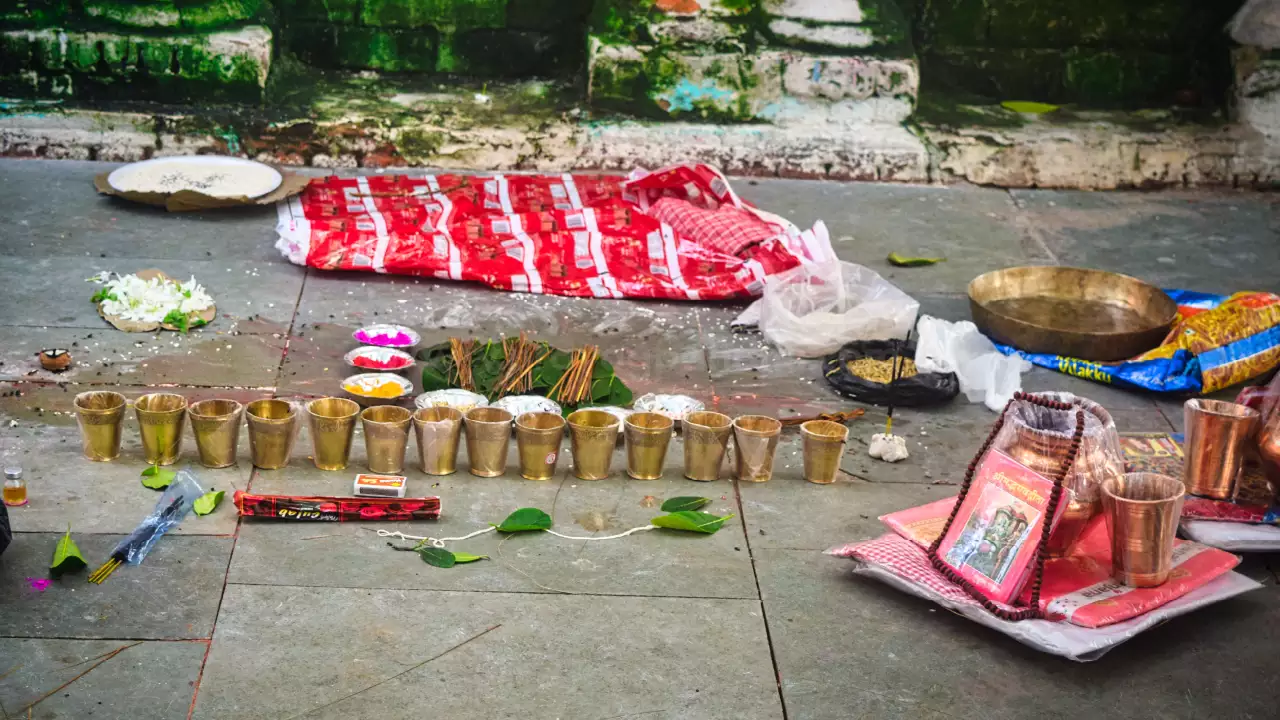Pitrupaksha Moksha Yatra 2022
Register yourself for Pitrupaksha Poojan along with all the travel planning.
पितृ मोक्ष यात्रा २०२२
Cities you will visit
- Prayagraj
- Gaya
- Varanasi
Poojan Included
- Pitra pooja
- Tarpan
- Shradh pooja
- Gau daan
- Ann Daan
- Patra Daan
Day to day schedule
Day 1: Arrive to Kashi. Check in to hotel & have rest. Go for evening ganga aarti.
Day 2: Depart for Prayagraj Pind daan pooja. Explore Bade Hanuman temple, Akshayawat temple. Return back to Kashi & have rest.
Day 3: Conduct Pind Daan pooja at Kashi & Ganga snaan. Visit Kashi Vishwanath temple, Annapurna Devi temple, Kaal Bhairav & depart for Gaya. Reach Gaya & check in to hotel.
Day 4: Conduct Pind Daan, Shradh pooja at Gaya near Phalgu river, Akshayavat Tree & Vishnupad Temple.
Depart for Kashi. Reach Kashi till evening & have rest.
Day 5: Depart for airport/ station. Trip ends
What is Pitrupaksha
The Pitru Paksha also known as Mahalaya Paksha, is a Hindu ceremony in which Hindus pay honour to their ‘pitrs,’ or ancestors. It lasts 16 days during Krishna paksha, or the time between Purnima (full moon day) and Amavasya, in the month of Ashvin or Bhadrapada, according to the Hindu calendar.

Pitru Paksha begins after the Ganesh Chaturthi festival, and the most important day is known as ‘Mahalaya Amavasya,’ ‘Pitru Amavasya,’ ‘Sarvapitri Amavasya,’ ‘Peddala Amavasya,’ or simply ‘Mahalaya.’
Pitru Paksha’s Importance:
Pitru Paksha, also known as “Pitri Pokkho,” “Apara Paksha,” “Peddala Amavasya,” “Jitiya,” or “Sola Shraddha,” is a Hindu religious rite.
It is thought that through performing the Shraddha ceremonies, their ancestors’ souls will ascend to heaven. The son performs all of the rites during Pitru Paksha since it is said in the ‘Garuda Purana’ that a man can only be saved after producing a son.

According to Hindu mythology, the departed souls of the ancestors can only rest in peace when the Shraddha ceremonies are completed. According to Hindu writings such as the ‘Markandeya Purana,’ when the ancestors are pleased with the tarpan, they give money, knowledge, and long and healthy life to the ritual performer.
